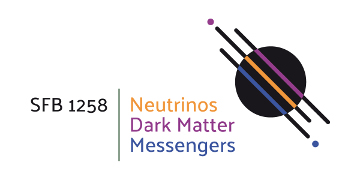Timetable
9:30 Welcome coffee
10:00 Andrea Caputo (CERN): From the ionosphere to neutron stars: how to use astrophysical plasmas to chase new particles
10:45 Coffee break
11:15 Daniel Gruen (LMU): DESI, neutrinos, and a decade of cosmological tension from galaxy surveys
Abstract: In the past decade, telescope observations of large areas of the sky containing large numbers of distant galaxies have been developed into the most powerful way to answer some of the most pressing questions in fundamental physics: the nature of dark energy (the accelerating force of cosmic expansion), dark matter (the main source of gravitational attraction in the cosmos), and neutrinos (arguably the oddest among the particles in the standard model). As we enter the next decade of galaxy surveys, the Dark Energy Spectroscopic Experiment (DESI) is using 5000 robotic fiber-based spectrographs on the Mayall Telescope at Kitt Peak, Arizona, to lead the field of precision measurements of the expansion history of the cosmos. As I will discuss in my talk, early results from DESI may have revealed, may have widened, or may have contributed to healing, a number of cracks in the standard model of cosmological physics, with interesting degeneracies between neutrino mass and dark energy equation of state and great prospects for discovery in the decade ahead of us.
17 Feb, Colloquy with Andrea Caputo (CERN) und Daniel Gruen (LMU)
Timetable
9:30 Welcome coffee
10:00 Andrea Caputo (CERN): From the ionosphere to neutron stars: how to use astrophysical plasmas to chase new particles
10:45 Coffee break
11:15 Daniel Gruen (LMU): DESI, neutrinos, and a decade of cosmological tension from galaxy surveys
Abstract: In the past decade, telescope observations of large areas of the sky containing large numbers of distant galaxies have been developed into the most powerful way to answer some of the most pressing questions in fundamental physics: the nature of dark energy (the accelerating force of cosmic expansion), dark matter (the main source of gravitational attraction in the cosmos), and neutrinos (arguably the oddest among the particles in the standard model). As we enter the next decade of galaxy surveys, the Dark Energy Spectroscopic Experiment (DESI) is using 5000 robotic fiber-based spectrographs on the Mayall Telescope at Kitt Peak, Arizona, to lead the field of precision measurements of the expansion history of the cosmos. As I will discuss in my talk, early results from DESI may have revealed, may have widened, or may have contributed to healing, a number of cracks in the standard model of cosmological physics, with interesting degeneracies between neutrino mass and dark energy equation of state and great prospects for discovery in the decade ahead of us.


